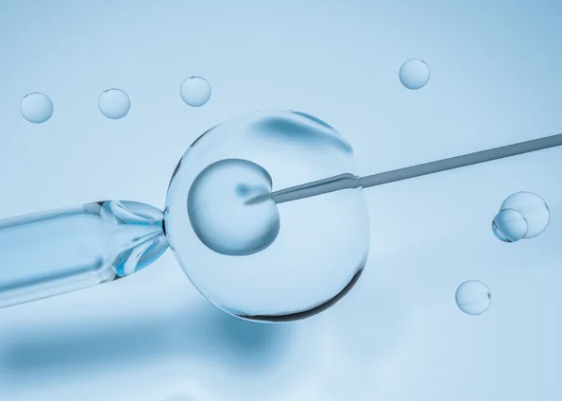The recent Supreme Court case, Dobbs vs Jackson Women’s Health Organization, overturned the previous 1973 Roe v Wade decision that protected a person’s right to abort their pregnancy. While this decision has garnered widespread media attention due to the resulting abortion restrictions/bans in conservative states, those affected by in vitro fertilization are also concerned that the case will affect the IVF process in addition to their reproductive rights.
In vitro fertilization is an alternate form of conception that can empower more people to be able to have children. The exact process can vary, but in most cases it involves extracting eggs from the mother and fertilizing them with sperm, either from the father or from a sperm donor, in a petri dish before being placed back into the uterus for development. In this way, same-sex couples, single women, and families struggling with infertility have been able to grow a family despite circumstances that otherwise may not have allowed them to.
IVF has faced backlash from many critics, especially conservative religious groups who believe alternate forms of conception are immoral. The organization “Catholics Come Home” states that “human dignity is best respected when the beautiful sexual union of two people conceives a child. This does not happen when a human being is created in a laboratory,” and encourages people who have attempted to conceive through vitro fertilization to “recognize that certain decisions [they] made were not the best, [that they should] apologize to God, and make an effort to live better.”
While this opposition is frustrating and hurtful, especially to people such as myself whose existence was made possible through IVF, Roe v Wade had protected IVF from significant legal challenges. However, now that it has been overturned, states get to decide when life begins, and that could have serious consequences on the current methods of IVF.
Generally, during the in vitro process, several eggs are extracted from the patient and fertilized at the same time. These embryos are then frozen so that genetic testing can be run to ensure the embryos received the correct number of chromosomes and the future child will not have a genetic disease. Freezing the embryos does not kill them- they just lie dormant until being thawed. After genetic testing is run, a single embryo is placed back into the patient’s uterus- placing more than one at one time can increase health risks associated with IVF. If the embryo successfully attaches to the uterus and begins to develop, the patient can continue their pregnancy and keep the other frozen embryos to be used in their potential future pregnancies, and if the implantation of the embryo is not successful, one of the frozen embryos can be used to try again. The frozen embryos can be disposed of if they find that it contains a genetic disorder or if the patient chooses to not have any more children.
If states were to define “personhood” as beginning at conception, then these embryos will be considered as having the same rights as any child. Discarding an embryo could be considered manslaughter, or keeping an embryo frozen could be considered child abuse, even though freezing embryos does not cause them any harm. If discarding embryos was deemed illegal, many families would have to pay to keep unused embryos in storage for the rest of their lives, ultimately making IVF too costly for lower-income families. Additionally, doctors may have to extract just one egg at a time to avoid making multiple embryos, which lengthens the process and subjects the woman to more medical procedures. The options to screen for genetic disorders would also be very limited, since the screening relies on the ability to freeze embryos while waiting for results to come back. In short, laws defining “personhood” as starting at conception could severely change the current IVF process and would limit in vitro access to families from diverse backgrounds.
Therefore, protesting the Dobbs decision isn’t just about advocating for a person’s right to an abortion– it’s also about ensuring that IVF remains accessible. In states that are in the process of passing abortion restrictions, it is imperative to ensure that their definition of personhood contains explicit exceptions for in vitro methods. By fighting simultaneously for abortion access and in vitro access, we work towards reproductive health for all.
Sources:
https://www.pbs.org/newshour/health/how-overturning-roe-v-wade-could-affect-ivf
https://www.catholicscomehome.org/what-does-the-church-teach-about-ivf/

